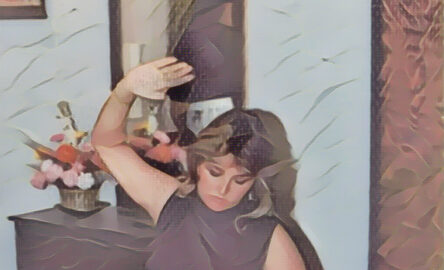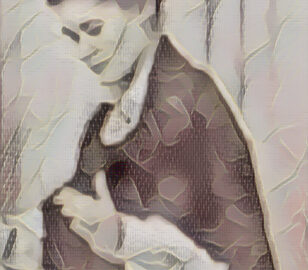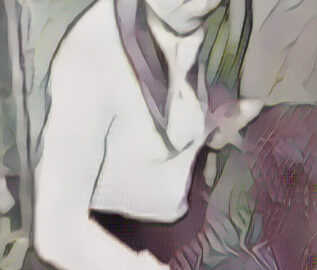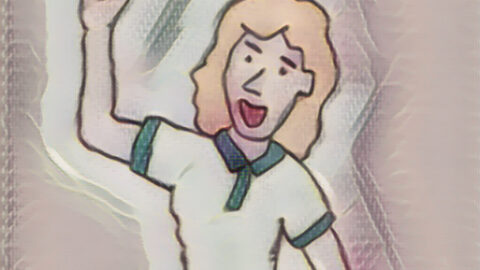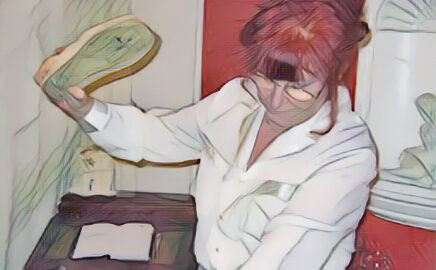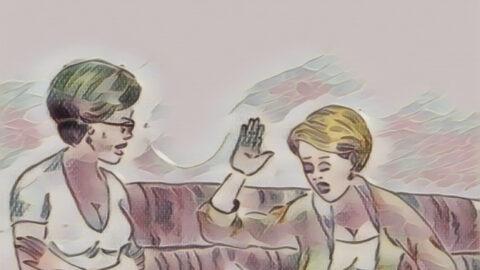(gap: 2s) Sunday mornings in my childhood were a peculiar mixture of solemnity and farce. The church, with its stained glass windows and the faint aroma of ancient hymnals, was not so much a place of worship as it was the setting for the weekly performance of my family. My great-grandmother’s house, situated just along the road, served as our green room—a place where the cast gathered, garments slightly awry, preparing for the next scene.
My cousins, James and Katherine, and I were the instigators of mischief, a secret society of pew-leapers and hymnbook illustrators. James, with his unruly hair and perpetually untied shoes, was the chief conspirator, always devising our next escapade. Katherine, sharp-witted and quick, could talk her way out of nearly any predicament—save, perhaps, the consequences of our actions. I was the quiet one, the observer, the chronicler of our adventures, ever watchful of the adults and the nearest means of escape.
Our most cherished amusement was “Saints and Sinners.” We would slip behind the pulpit, pretending to be angels on a secret mission, or villains plotting to abscond with the communion wafers. The old wooden chair by the window became, by turns, our throne, our spaceship, and our confessional. We would take it in turns to sit in it, confessing our imaginary transgressions—“I took a biscuit from the tin!” “I placed a frog in Aunt Susan’s handbag!”—and then absolving one another with a grand gesture.
The chair, naturally, was forbidden. It wobbled alarmingly, its legs threatening to give way with every fit of laughter. Aunt Susan, ever the disciplinarian, issued her weekly proclamation: “Touch that chair again and you shall answer to me.” Her voice resounded through the house like a church bell, but we remained undaunted. The forbidden is always more enticing, particularly on a Sunday.
One memorable morning, as sunlight streamed through the stained glass and dust motes danced in the air, James could not resist temptation. He climbed onto the chair, arms outstretched, proclaiming himself “King of the Choir.” The chair groaned, wobbled, and—miraculously—remained upright. However, his muddy shoes left a perfect print upon the seat, a clue as incriminating as any in a detective story.
The adults discovered the evidence during coffee hour. Aunt Susan’s eyes narrowed, her finger wagged, and the trial commenced. We stood before her, a trio of trembling suspects, as she delivered her verdict: “Confess, or all three of you shall face the consequences.” The congregation—my great-grandmother, the cat, and a half-eaten plate of biscuits—watched in silent judgment.
It was at this moment that Aunt Susan, in her most formidable Sunday best, drew herself up to her full height and fixed us with a gaze that could have curdled fresh cream. Her voice, low and grave, carried the weight of a thousand sermons. “If none of you will own up, I shall have no choice but to fetch the hairbrush,” she intoned, brandishing the dreaded implement as if it were a holy relic. “And let it be known, I have not forgotten how to administer a proper spanking. One by one, you shall be called forth, and woe betide the guilty party!” The very mention of the hairbrush sent a shiver down my spine. James’s bravado evaporated, Katherine’s clever tongue was stilled, and I felt my knees knock together in a most undignified fashion. The threat of a Sunday spanking, delivered with such theatrical solemnity, was enough to make saints of sinners and statues of the most fidgety children.
Aunt Susan’s ritual was as precise as any church liturgy. She lined us up before her, shoulder to shoulder, hands clasped in front, as if awaiting a royal audience. The room seemed to shrink, the air thick with anticipation and the faint scent of lavender polish. We dared not meet each other’s eyes, each of us acutely aware of the audience—my great-grandmother peering over her spectacles, the cat curled in judgment, and the biscuits, now quite forgotten. The embarrassment was almost as dreadful as the fear, for there is nothing quite so mortifying as being paraded before one’s relations, awaiting the fall of the hairbrush.
James, ever the martyr, attempted to take the blame, but Katherine interrupted with a spirited defence worthy of a barrister. “It was not only him! We are all responsible!” she declared, her voice ringing out like a preacher’s on Easter morning. I, torn between loyalty and self-preservation, remained silent, hoping to blend into the wallpaper.
Aunt Susan, perhaps inspired by the wisdom of Solomon, devised a new punishment: a lesson in forgiveness. “If you can recite the Lord’s Prayer without a single error, you shall be spared. But if you falter, well…” She allowed the threat to linger in the air, as heavy as incense, her hand still resting ominously on the hairbrush.
We lined up, hands clasped, hearts pounding. James went first, stumbling over “trespasses” and “temptation.” Katherine sailed through until “deliver us from evil,” which she pronounced “weasel.” My turn arrived, and I recited each word as though it were a secret code, my voice scarcely above a whisper, all the while acutely aware of Aunt Susan’s watchful eye and the ever-present hairbrush.
In the end, Aunt Susan relented. “You are all forgiven,” she said, her stern expression softening. “But next time, the chair shall go in the attic.” We breathed a collective sigh of relief, the threat of punishment replaced by the promise of biscuits and lemonade.
Years later, I recall those Sundays not for the sermons or the hymns, but for the laughter, the whispered secrets, and the thrill of nearly being caught. The church was our playground, the pews our climbing frame, and the adults—well, they were merely the audience for our weekly performance.
Occasionally, when I pass an old church or catch the scent of lavender and old books, I am transported back to those days. I see James, crowned with a paper halo, Katherine reciting prayers with a mischievous smile, and myself, ever the observer, scribbling our story in the margins of a hymnbook.
Childhood is a kind of liturgy, a series of rituals and rebellions, of lessons learned and swiftly forgotten. And if one listens closely, one can still hear the echoes of laughter reverberating off the stained glass, long after the final hymn has faded away.
(short pause) And so, as the sun set on another Sunday, and the last crumb of biscuit was swept away, we would tumble out into the garden, our pockets full of secrets and our hearts light with the knowledge that, for all Aunt Susan’s threats and the solemnity of the church, we had once again triumphed—if only by the skin of our teeth. For in the world of childhood, every narrow escape is a victory, every scolding a badge of honour, and every Sunday a new adventure waiting to be written. (pause) And if, by chance, the old chair did find its way to the attic, well—there were always plenty more thrones to be discovered, and plenty more mischief to be made, just around the corner.

























